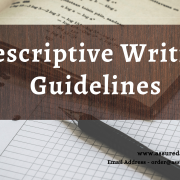Introduction
The main objective of the essay is to demonstrate the importance of reflective learning. In this case, the benefits of reflective learning will be discussed. “Reflective Learning” represents the learning procedure that focuses on learning that derives from individual experiences. As a part of the process, “Reflective learning” involves the application of knowledge and the creation of new learnings. This essay will elaborate on different models and concepts to enable the reader to understand the importance of reflective learning. In this essay, the six stages of “The Gibbs Reflective Cycle” will be interpreted to illustrate different experiences. Each stage of the cycle is quite important. Then, the nature of feedback will be described with a suitable approach to help to adapt the practices.
Describing reflection and reflective approach to learning
In terms of reflective learning, there are different approaches and concepts that help to understand the importance. Díaz-Iso et al., (2019) have stated that according to “Gibbs’ Reflective Cycle”, there are six stages. The circle model helps individuals to understand different phases of experiences. Each stage of the model is quite important for understanding the significance of reflective learning.
Description
This is the first stage of the reflective cycle. Here, individuals need to discuss the incidents. The questions involve different sections. For instance, an individual has been assigned a written group work. Gould and Taylor (2017) have opined those individuals will discuss the topic in the first stage. It may be the description of the entire assignment or just simply the writing style. This stage is important because it helps individuals not only to discuss the topic but also plan everything for their assigned tasks.
Feelings
The second stage will require individuals to explore more about their experiences. This can be related to an individual’s own personal experiences. For instance, any individual may have faced some kind of experience. Daniëls et al., (2020) have stated that the stage will require them to elaborate their feelings. For instance, one individual may realise that the activities are divided into different sections (Goy et al., 2020). In this stage, the feelings will be evaluated. Initially, one needs to address the emotional state. Then, the situations will be compared in terms of guilt and happiness.
Evaluation
In this case, reflective learning will evaluate the situation whether it has worked or not. For instance, the good and bad about the situation will be identified. As a result, it will help individuals to reduce their mistakes (Yu et al., 2020). In this case, the impact will contribute to the respective situation.
Analysis
This is the step where individuals get a chance to create a sense of a situation. Till now, the stages were focused only on details. However, this step will consider the analysis section as well.
Conclusion
This section will summarise the entire situation. For instance, it may include the learning outcomes of the individuals (Griggs et al., 2018). This stage is helpful due to its ability to handle the situation.
Action plan
The action plan involves proper planning that includes all the necessary steps. The action plan is necessary because it helps individuals to identify the required steps and do the needful.
Describing the nature of feedback and feedforward
“Feedback” is quite important for individuals because it helps them to acknowledge and discover different drawbacks. Zulfah and Aznam (2018) have opined that the nature of feedback shows how individuals will form positive and negative views. The constructive nature of feedback helps individuals to understand the subjective form. In this case, the feedback sessions not only encourage people to reduce their mistakes but also to check their motives. On the other hand, it can also be seen that the nature of feedback gives individuals a feeling of purpose and belonging. Being a human being, it is important to feel the core values of the society. Abah (2017) has stated that in terms of analysing the effectiveness and values of feedback, it can be seen that the elements of improvements need to be discovered. For instance, in higher educational areas, “Feedback” is considered as one of the difficult issues.
In this case, teachers are responsible for making the students understand the good performance. Brookes et al., (2019) have opined that in terms of goals or achievements, it can be seen that students who learn the difference between good and bad performance, can easily understand the self-assessment processes. As per the views of many reputed researchers, it can be observed that substantial research is a part of the process that needs to be acknowledged. Moreover, the simplification of improvements is also necessary for individuals. Bruno and Dell’Aversana (2018) have stated that in most cases, this is considered as reflections in learning. As a part of the responsibilities, teachers need to provide quality information as it evaluates the progress. Therefore, it can be observed that quality information is necessary for students. Summarising the entire evaluation, it can be stated that the nature of the feedback and feedforward exhibits a great significance towards individuals’ reflective learning. In addition to this, the opportunities reduce the close gaps between current and desired performances.
In terms of showing an effective approach, one needs to increase the value of effectiveness and likelihood of the feedback. Here, the conceptualized nature of feedback acts as information transmission for the students. Yaacob and Asraf (2021) have opined that during the written feedback information, the form of feedback becomes more effective and valuable. Here, individuals are provided with productive information. In the case of teachers, the information of feedback provided to teachers help them to shape the teaching. In most cases, reviewing a student’s performances drives individuals to create a better learning environment. Besides, there is always a right time to choose to provide feedback.
Describing the reflective approach to feedback and feedforward
A reflective approach in feedback conversation clearly shows the knowledge, skills and attitudes required for individuals. Beverborg et al., (2017) have opined that feedback is actually the information that a student receives after completing and submitting their learning work. The piece of work can be explored in a wide variety of forms, for example, lab reports, essays, presentation reports. It will accelerate the learning of students as every individual has their own skills and feedback to ensure the skills in an effective way. The approaches need to be effective to be useful for the individuals.
Conclusion
In conclusion, it can be stated that reflective learning is a great way to help individuals to experience their learning outcomes. The techniques used in reflective learning are not always easy. However, the six stages of “Gibbs’ Reflective Cycle” were quite easy and they have provided some valuable insights about reflective learning. The paper has shed light on improving the feedback process. The main objective of this paper was to show the benefits of reflective learning. The nature of feedback and feedforward clearly shows the different factors involved in reflective learning. On the other hand, the reflective approach demonstrated in the form of describing the significance has shown a positive impact on the individuals. Moreover, the paper has fulfilled the aim of the study. All the key concepts mentioned in the above section have proven to be helpful in improving the formative and summative assessments.
References
Brookes, O., Brown, C., Tarrant, C., Archer, J., Buckley, D., Buckley, L.M., Clement, I., Evison, F., Smith, F.G., Gibbins, C. and Hayton, E., (2019). Patient experience and reflective learning (pearl): a mixed methods protocol for staff insight development in acute and intensive care medicine in the UK. BMJ open, 9(7), p.e030679.
Daniëls, E., Hondeghem, A. and Heystek, J., (2020). Developing school leaders: responses of school leaders to group reflective learning. Professional Development in Education, pp.1-15.
Gould, N. and Taylor, I., (2017). Reflective learning for social work: research, theory and practice. Routledge.
Yaacob, A. and Asraf, M., (2021). Empowering Learners’ Reflective Thinking through Collaborative Reflective Learning. International Journal of Instruction, 14(1), pp.709-726.
Zulfah, H. and Aznam, N., (2018). Development of Natural Sciences Module with Reflective Learning Journal to Enhance Student’s Reporting-Interpretative Skills. Biosaintifika: Journal of Biology & Biology Education, 10(2), pp.362-368.











